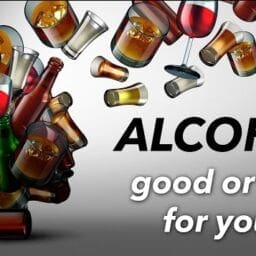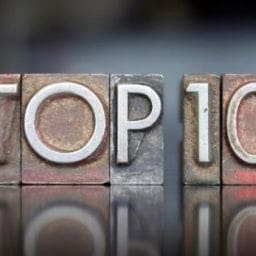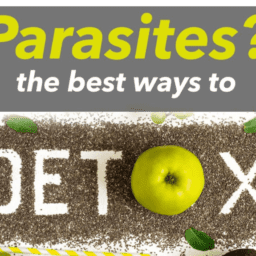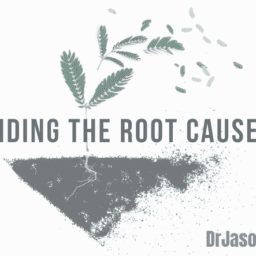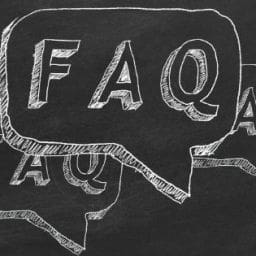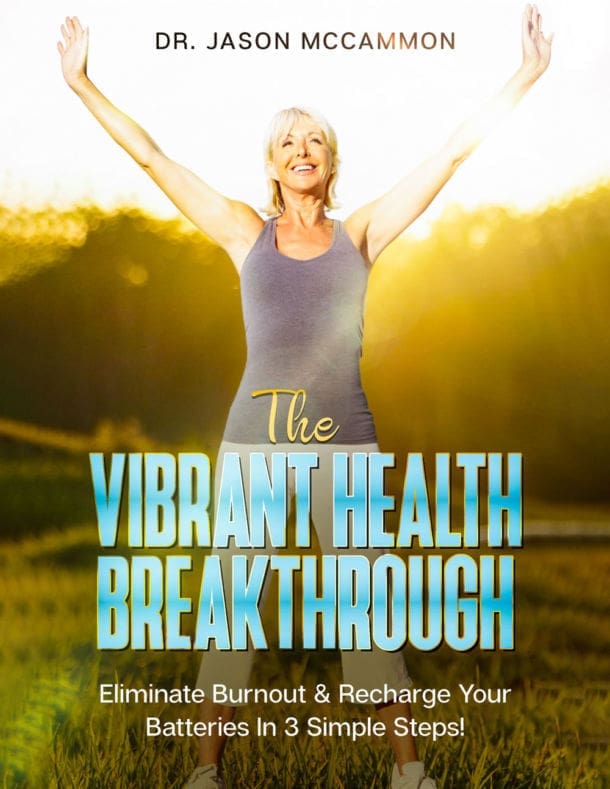
Stop Blaming Your Thyroid
Advice from a holistic doctor, using a naturopathic approach to help you support a healthy thyroid, even if you suffer from hypothyroid or Hashimotos.
The thyroid is often blamed for low energy, weight gain, infertility, and just not feeling good. While this is indeed an important gland for healthy bodily function, it’s often unfairly solely blamed for many of these health issues. Further, the conventional approach of simply using a single blood value to assess the thyroid and thyroid hormone function is over-simplified and does not address the root of the problem. Often medication is prescribed to treat an underperforming thyroid yet the symptoms often do not go away. The medication does not fix poor thyroid output nor the root cause of why it may be failing. Truth is, low energy and weight gain are a serious sign of many underlying health issues, which may or may not involve the thyroid. This article discusses how to nourish your thyroid while also learning what else can be at play in terms of the root cause of your symptoms. Let’s stop blaming the thyroid and talk about what is really going on.
Myth busting.
Low thyroid is genetic. Usually when conventional medicine doesn’t have a lot of answers or reasons for things, they often say, “Oh, it’s probably because mom and dad had low thyroid. Let’s check your family history.” Oh, sure enough, they had that low thyroid.” Actually, research shows that it’s less than 0.2% of chronic illness. So, very little chance of that. Is it possible? Sure. But let’s not keep blaming genetics. Even if it were a genetic issue, there’s still things you can do about it.
Low thyroid is the only cause of fatigue, exhaustion – completely false right there. It is a factor, yes. But we have adrenals, and in fact, I think that’s more superior as far as under diagnosis. We have your gut microbiome and all the gut issues, food intolerance. And of course, if you’re malnourished and you have no fuel and no minerals coming in the body, how can you have energy and feel like you have a metabolism?
And then a lot of times people will just get a TSH, also known as thyroid stimulating hormone from the pituitary gland, and that’s pretty much all I see. I asked for labs from clients if they had a provider they work with, and they’ll bring me the report with the TSH, they’re like, “See, see, it’s high. I knew I had hypothyroidism.” Okay, there’s a lot more to the thyroid and all the connections it makes than just TSH. Often a doc may get your TSH in range yet you are still reporting feeling like crap, exhausted with no energy. Very common right?
If you’re on a T4 (thyroxine) replacement or a drug like a Synthroid or Levothyroxine, that’s going to bring that number down, you may no longer be in clinical hypothyroid but that does not mean that hormone is converting well at the cellular level. In fact, being that you had low thyroid function PROVES the backend conversion is almost always poor. So you can have perfect TSH and yet have little energy.
Another myth, that you only use blood values to dial in your thyroid function. There’s a lot of other ways to measure hormones in your body including salivary, urine, and again, many more functional testing that’s going to look at the conversion of these hormones, which I’ll talk to you later. But we’ve got to look at more than just blood values.
Another big myth is that many docs are okay with random draw times for blood requisitions. Did you know that in published studies, in the Natural Medicine Journal, they found time of day makes a huge difference. They found that going in the morning is actually essential for a more accurate picture of your thyroid function. If you get lab values, go in the morning, or if you get salivary values, which I prefer, collect in the morning. By the afternoon, your thyroid production goes down on purpose because we need a little less energy as the day wears on, so it’s going to look like a little bit more normalized levels later in the day.
And then there’s another myth – you’re completely doomed if you have no thyroid. Maybe you’ve had a radiation treatment or you’ve had it removed for one reason or another. There are still ways we can work with your body to improve thyroid conversion and solve a lot of these issues. You’re not doomed at all.
Story time.
I have a recent client who has a Hashimoto’s thyroiditis diagnosis from a conventional doctor, something that I’ve dealt with and put in remission personally, which it’s tricky, but it can be done. Just for those of you out there that are dealing with that, I know it’s difficult. I’m here for you. But we were able to dramatically improve her health. Of course, it took more than just working on the thyroid as poor thyroid function was a symptom not a cause of Hashi’s, but there’s a lot we can do. And her numbers did come down but most importantly she felt like she had more energy again. She could barely lift a finger after getting home from work but in short order she was going on hour+ long hikes, far exceeding the exercise level I suggested for her.
So, we improved this tremendously with her because we addressed the underlying causes of the autoimmune condition, which really had nothing to do with the thyroid, by the way, which is the case in most autoimmune conditions. It has to do with healing the gut, nutrient deficiencies, food sensitivities, and toxicities. Stress was a big one and so is the lack of quality sleep. She was a shift worker, so we had to talk about strategies to improve her deep sleep. But she was able to stop her reliance on medication, reduce her body weight, and get normal energy levels. It was incredible, the transition. I was so proud of her. It was awesome! Many clients have gotten this outcome since we took the holistic route and looked at the big picture. Many of these things I will share below.
Removing obstacles.
Let’s talk about endocrine disruptors. There are over 250,000 persistent man made chemicals in our environment. Obviously, in some areas of the world there will be more than others. However, we live in that sea every day – we breathe it, drink it, it’s a part of our food system. Unfortunately, it’s a sad fact. That’s actually a published statistic now called Body Burden. So, what can you control?
Deodorants that you put on, especially women with their lymph nodes near the breast, be really careful with that. Try Schmidts or Native. Let’s get away from the aluminum garbage. A big one is phthalates and all those chemicals that they put into like air fresheners, things that help smells go throughout your house. They smell amazing, but those are very toxic over a long period of time of exposure. So, we’ve got to work on getting rid of these endocrine disruptors, other man made chemicals, food additives, dyes in your food, etc. Another big one is going to be your chemicals they put in your detergents. Try to get away from as many of those as you possibly can.
Give your body and your glands a fighting chance. These disrupt your endocrine system, which what does that mean? It’s going to screw with the signal coming out of the gland and or affect whether or not the hormone can bind to the receptor site. When these nasty man-made chemicals are circulating throughout your body, they are binding to the receptor sites which block the endogenous (body made) hormone such as thyroid hormone. If it’s blocked by other things in your inner environment, it can’t hear that hormone, therefore, it can’t do its job, and therefore, in many cases, the thyroid hormone is ineffective.
You’ve got to get in a routine. Our body thrives on routine. We’ve got to try to go to bed and create a sleep routine about the same time every night. Winding down, going to analog entertainment, away from the screens, things like that. You have to get in a rhythm for your endocrine system to start saying, “Oh, you know what? I should be secreting this hormone at this time.” Really important.
A big one that is super important to discuss is the conversion of T4 to T3. Going back to that medication we talked about or even your normal endogenous production of this hormone, if you’re making enough, you’ve got to be able to convert T4, which is largely inactive in our body, to T3. T3 is the active thyroid hormone that actually tells us, “Hey metabolism, speed up please. We need to burn energy here, we need to keep our body temperature up, and remove this excess body weight.” I’ll talk about some nutrients a little bit later that can help with that conversion. But that’s essential. That’s often missed in your lab values by a typical conventional provider.
Let’s talk about reverse T3. Reverse T3 is your body basically putting the brakes on your metabolism. It’s taking T3 then it’s converting what little you have left there for burning fuel in your body, creating metabolism, and often converting that to reverse T3. Reverse T3 does the opposite of T3, which slows down our metabolism and helps the body go into long term survival mode. Reverse T3 says, “You know what? We don’t want to expend energy.” And there’s many reasons for that, one of them is stress, there’s also nutrient deficiency.
And then we got to look at a high nutrient diet. We’ve got to add the raw materials to the diet that your body needs in general, but especially the thyroid to actually make hormones. If your body is in a constant state of miscommunication from endocrine disruptors, we’re not getting sleep, we’re not getting good conversion, we’re malnourished, then you’re just not going to have a good glandular system regardless of what provider you work with. So, you’ve got to work on that.
Let’s talk about supporting the thyroid.
Nascent Iodine is a type of iodine that’s charged and tends to be more effective in the body. You should watch the dose though as you can OD on it like anything. I would suggest roughly around the 100 to 150 mcg level. If you have a high sea veggie diet, you may not need any. But, again, we want to look at possible iodine supplementation if you’re going to be low. I wouldn’t go much over 200 mcg. There are studies especially out of Turkey that showed when they did a public service of pushing iodine supplementation, they actually induced thyroiditis, Hashimoto’s, to a large chunk of that population because they overdid it with iodine.
Selenium, it’s been a little bit more of a recent nutrient that’s been talked a lot about because of Covid and its immune support. That’s big for thyroid production.
Vitamin D3. Unbelievable powerhouse; does so much. It’s actually a steroidal type structure. It’s not really a vitamin, but we’ll call it that. Really important to get your D3 levels checked. The research shows ideal blood values of D3 are between 50 and 80. Many clinicians only care about getting you “in range” which might be as low as 30 or 35, which is still not ideal for optional health and is certainly way too low for someone dealing with low thyroid issues. The lowest level of toxicity that I’ve found in the literature is 200 blood levels. Most people, adults, will require 5,000 to 10,000 IU per day to get to that level. It’s really important to get your D checked. The often recommended 1,000 IU to 2, 000 IU a day is just not enough.
Zinc is a big one as well. Got to watch zinc. Again, it’s been back in the media and very popular based on its antiviral properties. It’s very powerful. But let’s be careful with our zinc and look at the 15 to 20 milligrams of zinc. We don’t need mega doses like 50, it’s kind of overdoing it there.
Glandulars, a whole other topic, but glandulars are basically freeze dried extracts of extracted glandular tissues from typically a pig or from a cow (bovine or porcine). And these can help support our glands. It’s not about the tiny amount of hormones they contain but rather they contain the raw material to help our body repair our own glandular tissues.
Guggul, an extract from the Boswellia plant, has been used for centuries in Ayurveda medicine. Ayurveda has some incredible, rich scientific history, and as a healthcare system, it’s pretty amazing. But it has been shown to help support thyroid function. So, something to think about there. Maybe at the 25 mg level or so.
Looking at the big picture.
So, really looking at the thyroid from a holistic standpoint, looking at the myths out there, looking at ways to remove obstacles from your gland and signaling, looking at supporting it I feel is a far better approach as far as looking at this topic as a whole versus just blaming the thyroid for its failure and looking at just taking a medication to solve the problem.
Free E-Book.
I wrote an ebook, called Vibrant Health Breakthrough, that I know can help you start to rebuild your health. It’s free so check it out!
Be Well and God bless!
~Dr Jason

